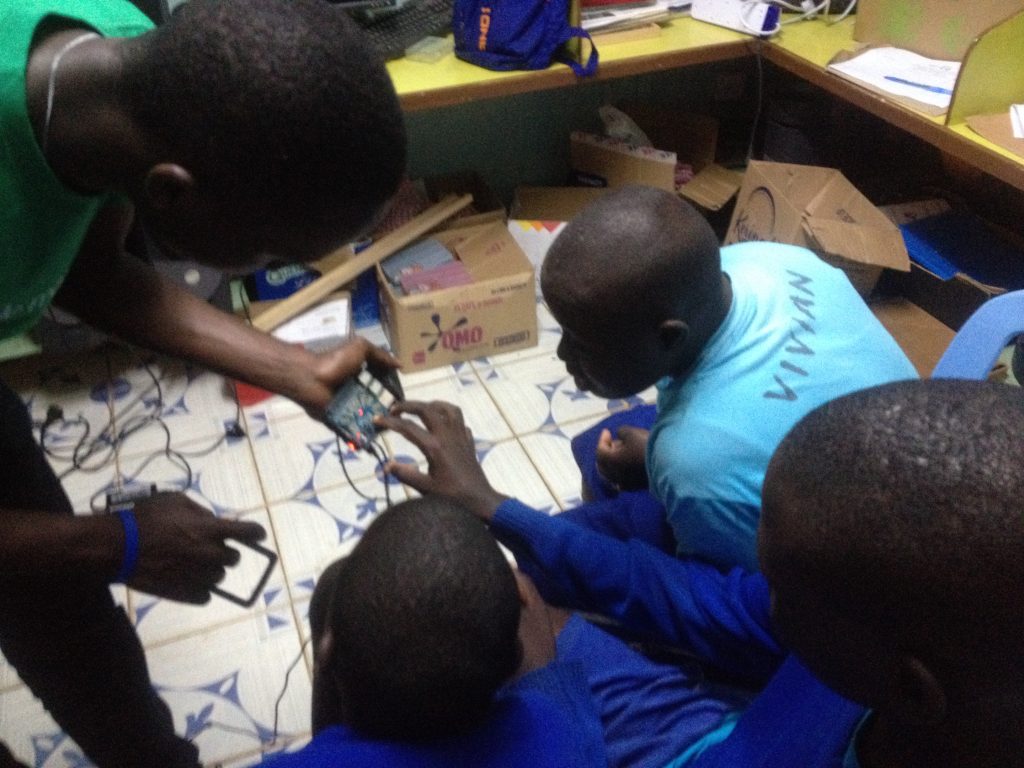Fabrication Lab-in-a-Kit (FLiK): DIY Assistive Technology for Children with Disabilities in Kenya
Project Name: Fabrication Lab-in-a-Kit (FLiK): DIY Assistive Technology for Children with Disabilities in Kenya
The FLiK Project uses a Community-Based Research approach to understand the socio-economic, cultural, psychological and technological dynamics that determine the impact of designing, developing and deploying do it yourself (DIY) digital assistive technology for Kenyan children with disabilities. The project examines how cultural attitudes and norms about disability affect the process of development and use of digital assistive technology for this population and investiagtes how collaborative Participatory Design (PD) processes shift the understanding of technology and disability in this cultural context.
Lab Collaborators: Hamidi, Foad
Other Collaborators: Michaela Hynie Michaela Hynie (Department of Psychology, York University) Susan McGrath (School of Social Work, York University) Patrick Mbullo Owuor (Executive Directory, Pamoja, a Community Based Organization)
Terms Active:
Further Information
Approximately 10% of the Kenyan population is living with a disability; they face infrastructure barriers, (e.g., accessibility of transportation and buildings), barriers to economic participation and employment, and negative attitudes and beliefs of the community. At the same time, Kenya is fast becoming a technological innovation hub with opportunities for providing technological resources. In this project, we use a Community-Based Research (CBR) approach (Horowitz et al., 2009) to understand the socio-economic, cultural, psychological and technological dynamics that determine the impact of designing, developing and deploying do it yourself (DIY) digital assistive technology (DAT) for Kenyan children with disabilities.
Specifically, this project examines 1) how the stakeholders’ cultural attitudes and norms about disability affect the process of development and use of DAT for this population and 2), how collaborative Participatory Design (PD) processes shift the understanding of technology and disability in this cultural context.
This project is being conducted by a transnational multidisciplinary team of researchers in human-computer interaction, community development, social and cultural psychology, social work and refugee studies. One of our members is a founding member of a Kenyan NGO with several years of community-based experience working with children with disabilities. We have been working with local partners including Maseno University, 3 special education schools, and national disability advocacy groups including the Association of the Physically Disabled in Kenya (APDK), and the National Council for People with Disabilities.
As a prototyping and fabrication platform, we use TalkBox, a low-cost DIY open-source communication and information access system that we have developed and used in collaborative workshops with teachers, parents and children with disabilities who themselves created variations to fit their needs (Hamidi et al., 2015; Baljko et al., 2016).
The project outcomes include 1) understanding the impact of participatory practices on attitudes towards disabilities, on self-efficacy, and on the technical knowledge of stakeholders; 2) increased access to DATs both through access to the developed technologies retained by stakeholders and the participants’ increased technical knowledge; 3) KM products in the form of supporting documentation for the maintenance and re-creation of DIY DATs in Kenya; and 4) an increased understanding of the stakeholders’ socioeconomic and technological dynamics in the design and deployment of assistive technology with potential implications for policy and guidelines for others in the international network seeking the meaningful social inclusion of persons with disabilities through genuinely collaborative communities that bridge ability, age, income, and expertise domain.

Project Outputs and Results:
